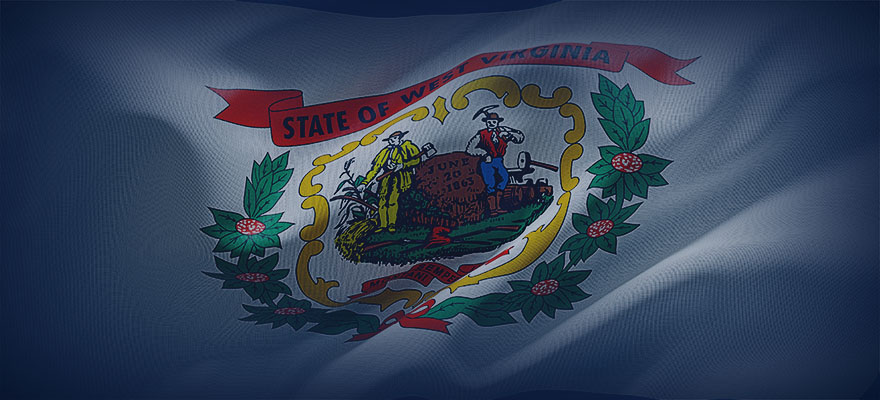Updates by State
- Florida Sales Tax Holidays for 2024
- Illinois Could Change Discount
- Indiana Changes Requirements for Remote Sellers
- New Jersey: Big Upgrades to Tax-Filing System Coming in Early 2025
- New Jersey Sales Tax Exemption Notice on Contractor Purchases
- Ohio: Proposed Legislation on Food Delivery
- Ohio Business Gateway: 2-Step Verification
- Pennsylvania Could Change Discount
- Tennessee: 2024 Updates to the Tennessee Works Tax Act
- Tennessee: Optional Reduced Local Tax on Food and Food Ingredients
- West Virginia: June 2024 Soft Drink Tax Repeal
Florida Sales Tax Holidays for 2024
Written by: Adore Walker
Florida 2024 Disaster Preparedness Sales Tax Holidays
Florida’s first Disaster Preparedness sales tax holiday begins on June 1 and ends June 14, 2024. A second Disaster Preparedness sales tax holiday takes effect on August 24 and ends on September 6, 2024. Tax on retail sales of disaster preparedness related items is not due during the sales tax holiday periods. (Source)
Florida’s Freedom Month Sales Tax Holiday on Specific Admissions and Outdoor Activity Supplies
Florida’s Freedom month sales tax holiday begins on July 1 and ends on July 31, 2024. Tax is not due on retail sales of admissions to music events, sporting events, cultural events, specified performances, movies, museums, state parks, and fitness facilities. This also applies to electric scooters, eligible boating and water activity supplies, camping supplies, fishing supplies, general outdoor supplies, and residential pool supplies. (Source)
Florida’s 2024 Sales Tax Holiday for Tools Commonly Used by Skilled Trade Workers
Florida’s Tool Time Sales Tax Holiday begins on September 1 and ends on September 7, 2024. Sales tax on retail sales of items that are used by skilled trade workers are not due during the sales tax holiday. (Source)
Illinois Could Change Discount
Written by: Claire Ashcraft
Filed in May, HB5844 would change the vendor discount to 2.5% with a monthly cap of $500. The bill was referred to committee on May 14, 2024
Indiana Changes Requirements for Remote Sellers
Written by: Claire Ashcraft
Sales Tax Bulletin #89 was issued in April and indicates the 200-transaction threshold for remote sellers has been removed effective January 1, 2024.
Businesses that met the 200 transaction threshold but not the $100,000 threshold and do not anticipate doing so in 2024 and forward may close their sales tax account in 2024 but are still responsible for filing 2024 returns.
New Jersey: Big Upgrades to Tax-Filing System Coming in Early 2025
Written by: Andrea Morrison
The New Jersey Division of Taxation is undertaking a modernization initiative for its tax-filing system with a five-stage strategy. Beginning in 2025, businesses and tax preparers dealing with sales and use tax will access a new, secure taxpayer portal to engage with the state’s tax-filing framework. This portal will offer direct filing options and greater control over their accounts. Marking the first significant update in over four decades, the portal signifies a transformative shift in how tax filers and preparers engage with the Division of Taxation.
The initial phase, set to launch in early 2025, will encompass the 17 taxes categorized under sales and use. Subsequent phases will introduce additional tax categories and functionalities. Regular updates on portal enhancements, key dates, preparatory activities for businesses and individuals, and the anticipated impact on New Jersey tax filers and preparers will be provided on this platform.
New Jersey Sales Tax Exemption Notice on Contractor Purchases
Written by: Andrea Morrison
Effective May 1, 2024, New Jersey introduced a sales and use tax exemption for contractors working on affordable housing projects for occupants with moderate to very low incomes.
The exemption covers purchases of materials, supplies, and certain services exclusively for improving, altering, or repairing real property owned or leased by housing sponsors engaged in such projects. Contractors must provide Form ST-13 to sellers to claim the exemption; otherwise, tax must be collected. They should retain copies of ST-13 for purchases from sellers outside New Jersey.
Notably, equipment purchases are not exempt. Housing sponsors must maintain documentation verifying income levels of occupants. Contractors can seek refunds for erroneously paid taxes within four years. This notice offers concise instructions for contractors to navigate the exemption process effectively while supporting affordable housing initiatives in New Jersey.
Ohio: Proposed Legislation on Food Delivery
Written by: Andrea Morrison
State Representative Beth Lear (R-Galena) has recently presented House Bill 424, a legislative proposal aimed at tackling unintended instances of double taxation that may arise when utilizing delivery platforms such as Instacart and Uber Eats.
The bill proposes changes to sales and use tax collection for online marketplaces connecting customers with local businesses within a 75-mile radius, particularly targeting delivery network companies. It emphasizes determining the seller and taxable price for online purchases. Currently, delivery network companies are treated as sellers due to being marketplace facilitators, subject to substantial nexus criteria. The taxable price includes delivery charges if provided by the seller. However, the bill offers a waiver for delivery network companies to opt out of being classified as sellers, treating delivery charges separately as taxable sales. To obtain the waiver, companies must meet tax obligations and notify local businesses. With the waiver, the local business becomes responsible for tax collection on goods sold through the platform. For companies with the waiver, delivery charges are taxed separately regardless of the goods’ tax status, while those without the waiver collect tax on delivery charges as part of the taxable price.
Ohio Business Gateway: 2-Step Verification
Written by: Andrea Morrison
Starting August 1, Ohio Business Gateway users must employ 2-Step Verification for access, enhancing security measures. This procedure ensures user identity confirmation by requiring additional verification steps beyond passwords. OBG users are encouraged to set up their verification options promptly to avoid any interruption in accessing the gateway.
Individuals who have already established 2-Step Verification with another State of Ohio agency login are exempt from additional setup, as their existing verification suffices for access to the Ohio Business Gateway.
Pennsylvania Could Change Discount
Written by: Andrea Morrison
HB2278 was referred to committee on May 14, 2024. The bill would allow for a vendor’s discount that would be the lesser of 1% of tax collected or $25 for monthly filers, $75 for quarterly filers, or $150 for annual filers.
Tennessee: 2024 Updates to the Tennessee Works Tax Act
Written by: Christina Stainbrook
On May 11, 2023, Governor Lee enacted the Tennessee Works Tax Act (TWTA). Public Chapter 377 (2023). This legislation introduces various amendments to Tennessee’s sales and use tax system, including adopting sourcing provisions aligned with the Streamlined Sales and Use Tax Agreement. These provisions aim to clarify sellers regarding the applicable state tax on sales within or outside the state. The amendments will come into effect on July 1, 2024.
Summary of Sourcing Changes
Destination Sourcing for the Sale of Services Related to Tangible Personal Property and Computer Software
The TWTA adopts destination sourcing for interstate sales of services performed on tangible personal property and computer software.
Sourcing for Marketplace Facilitators
All transactions, encompassing services conducted via the marketplace facilitator’s platform, are attributed to the location where the purchaser receives the product.
Sourcing for Leased Property
The TWTA implements destination sourcing for leased assets, such as licensed computer software or specific digital goods, when the primary property location shifts outside Tennessee during the lease duration. Payments made for subsequent periods after the leased or licensed property relocates outside Tennessee are no longer attributed to Tennessee and are recorded as exempt interstate transactions. However, this regulation excludes the leasing of transportation equipment—trucks, trailers, locomotives, aircraft, shipping containers, and large vessels employed in interstate trade.
Sourcing for Sales of Direct Mail Distributed to Mail Recipients Outside Tennessee
Sales originating from a Tennessee business location, involving advertising and promotional direct mail, as well as other direct mail delivered to recipients outside Tennessee, will no longer be attributed to Tennessee. In cases where the sales price covers distribution both within and outside the state, the segment of the sales price equivalent to the proportion of direct mail sent to recipients outside Tennessee will not be attributed to Tennessee and will be reported as exempt interstate sales.
Magazine and Book Distribution Exemption
Effective July 1, 2024, sales into Tennessee of magazines and books through mail or common carrier, when the seller has limited activities in Tennessee, will no longer be exempt. These sales will be attributed to Tennessee and will be subject to taxation.
Cooperative Direct Mail Businesses
The TWTA removes an exemption for sales conducted by an entity exclusively involved in cooperative direct mail advertising in Tennessee, which includes combined mailings of discount coupons and advertising leaflets for multiple businesses.
Tennessee: Optional Reduced Local Tax on Food and Food Ingredients
Written by: Christina Stainbrook
Cities and towns in Tennessee may now elect to reduce their local sales tax rate on food and food ingredients.
Pub. Ch. 917 (2024) introduces a fresh “city tax rate” applicable to the retail sale of food and food ingredients. This term denotes a rate set by a city or town that equals the disparity between the county tax rate and the city tax rate, provided the county tax rate falls below 2.75%.
For an incorporated city or town to establish a lower tax rate on food and food ingredients or to exempt them from the city tax rate, it must pass an ordinance through its governing body. The city or town must submit a certified copy of the adopted ordinance to the Department of Revenue. The reduced tax rate or exemption becomes effective on the first day of the month occurring at least 60 days after the Department receives the certified copy. Furthermore, the reduced tax rate or exemption is applicable solely to tax periods commencing on or after October 1, 2024.
West Virginia: June 2024 Soft Drink Tax Repeal
Written by: Christina Stainbrook
The West Virginia Soft Drink Tax is sunsetting on June 30, 2024. Soft drink stamps stopped being issued as of May 31, 2024. Taxes for June 2024 can be paid after they’re accrued. Unused stamps can be returned for a refund, though refunds might be subject to a managed audit. Once applied, stamps cannot be removed from products and won’t qualify for a refund.
The West Virginia Soft Drink Tax was an Excise Tax imposed on bottled soft drinks, syrups, and dry mixtures.
Bottled soft drinks include any and all nonalcoholic beverages, whether carbonated or not, such as soda water, ginger ale, Coca Cola, lime cola, Pepsi Cola, Dr. Pepper, root beer, carbonated water, orangeade, lemonade, and fruit juice when any plain or carbonated water, flavoring or syrup is added.
Soft drink syrups and dry powders include the compound mixtures or the basic ingredients, whether dry or liquid, practically and commercially usable in making, mixing, or compounding soft drinks by the mixing thereof with carbonated or plain water, ice, fruit, milk, or any other product suitable to make a soft drink.

TRANSACTIONTAX360™
Compliance is just one piece of the transaction tax lifecycle. As your dedicated partner, DMA offers a unique, comprehensive approach to solving your toughest tax challenges. We call it TRANSACTIONTAX360™.
Our transaction tax and tax technology teams work with you to provide jurisdiction- and industry-specific tax expertise along with process optimization and automation.







